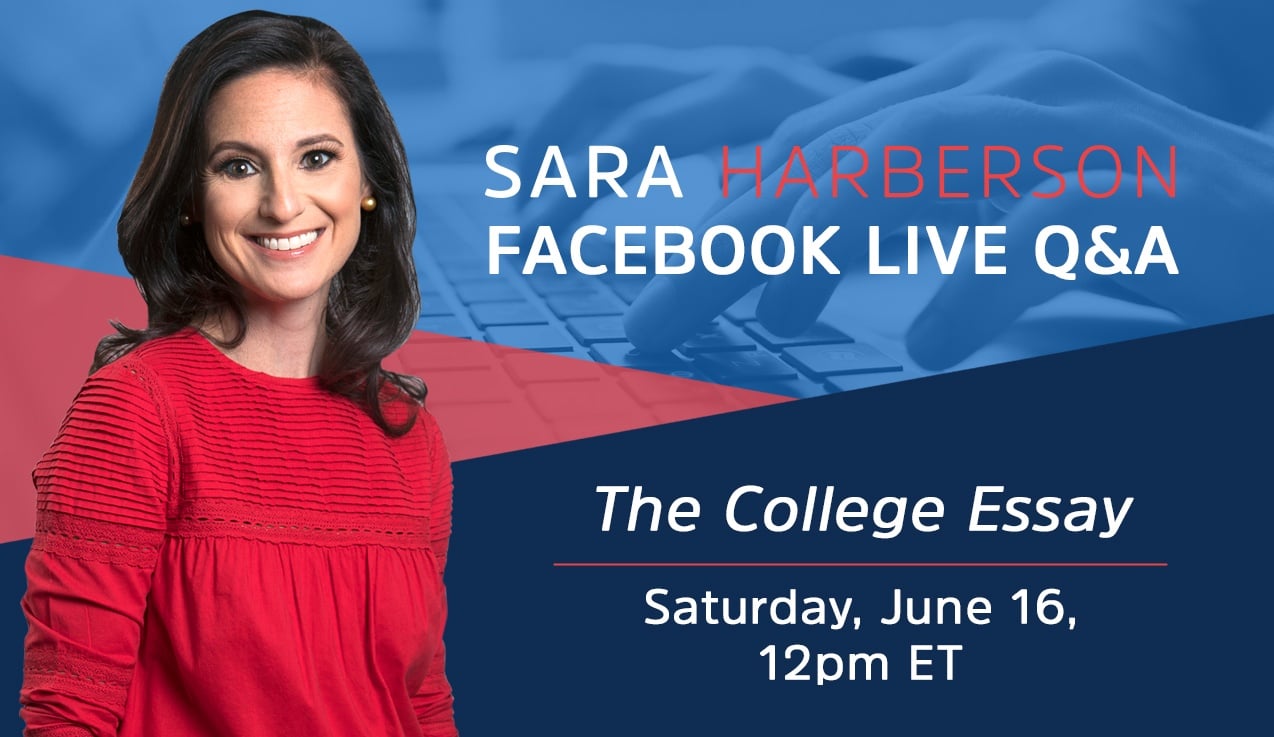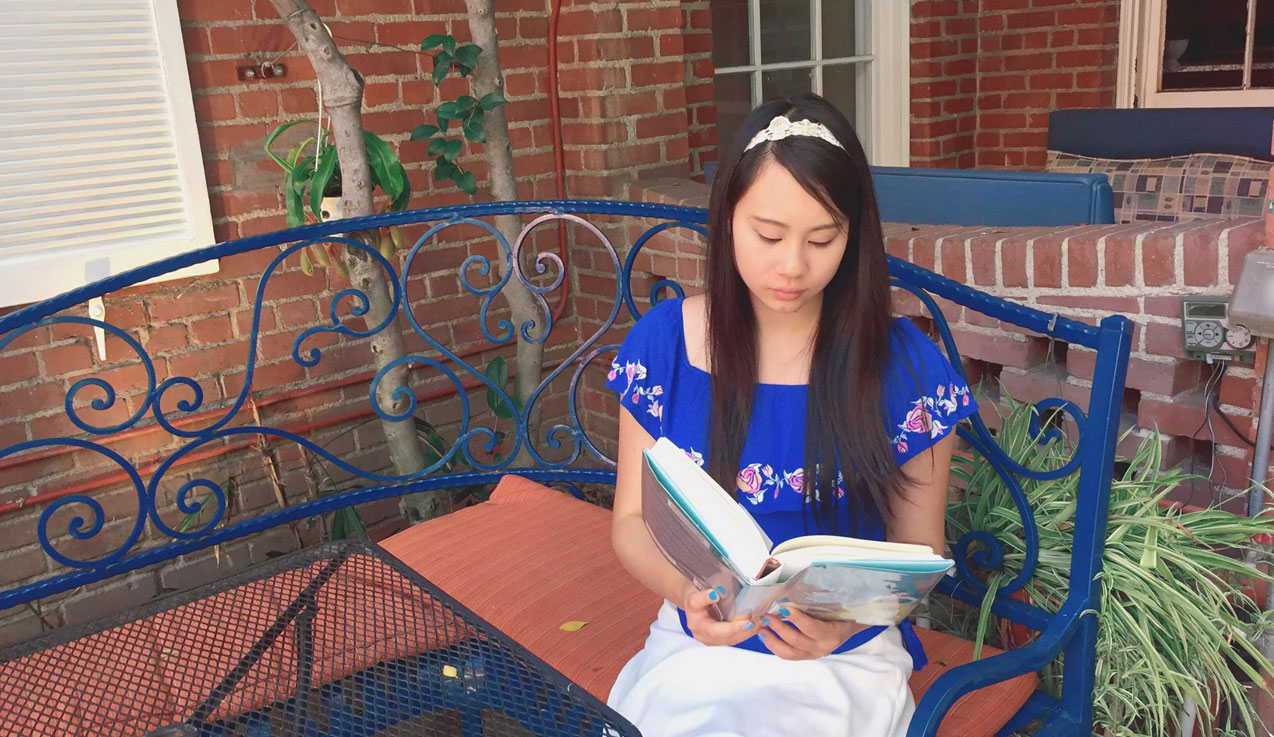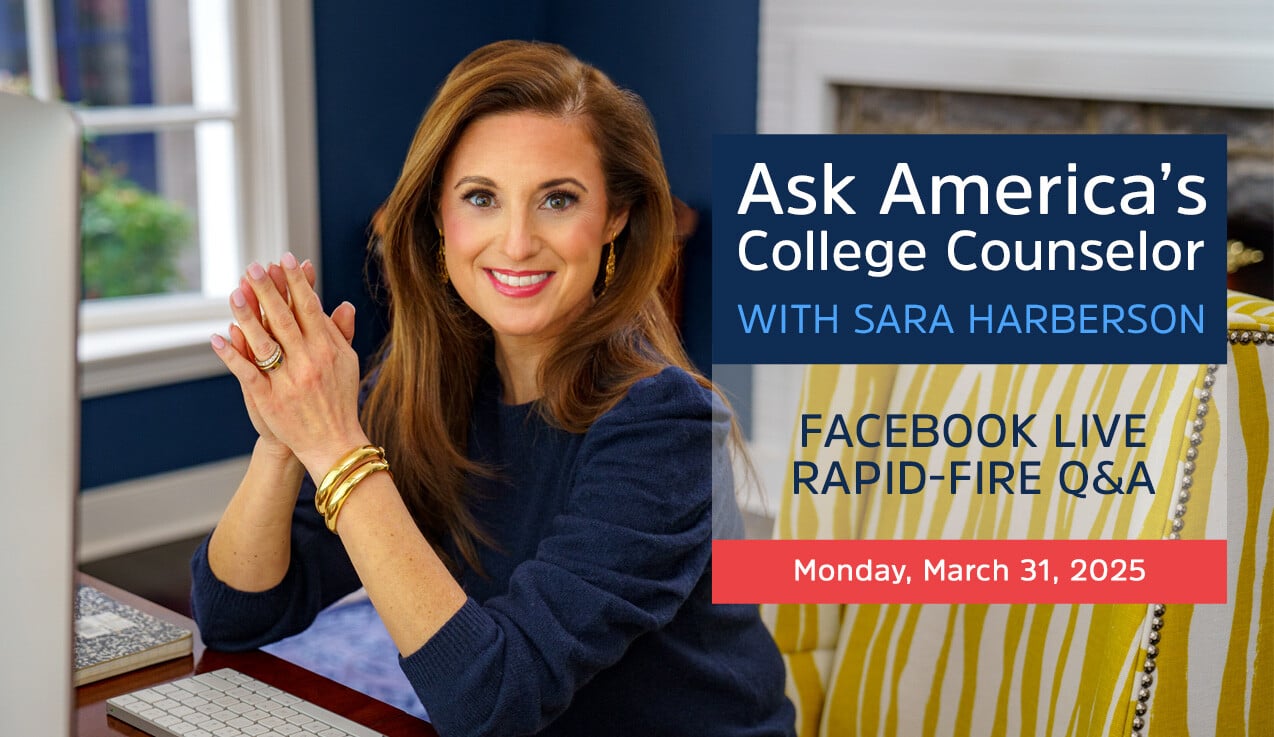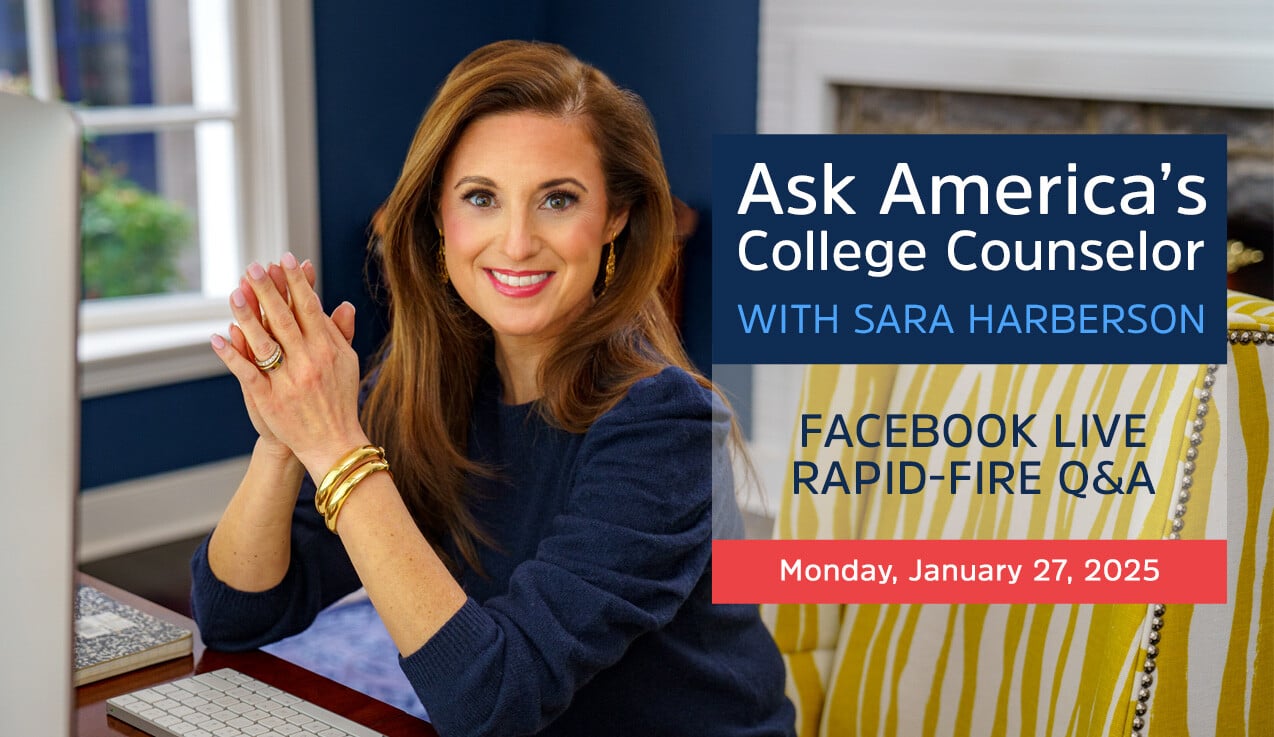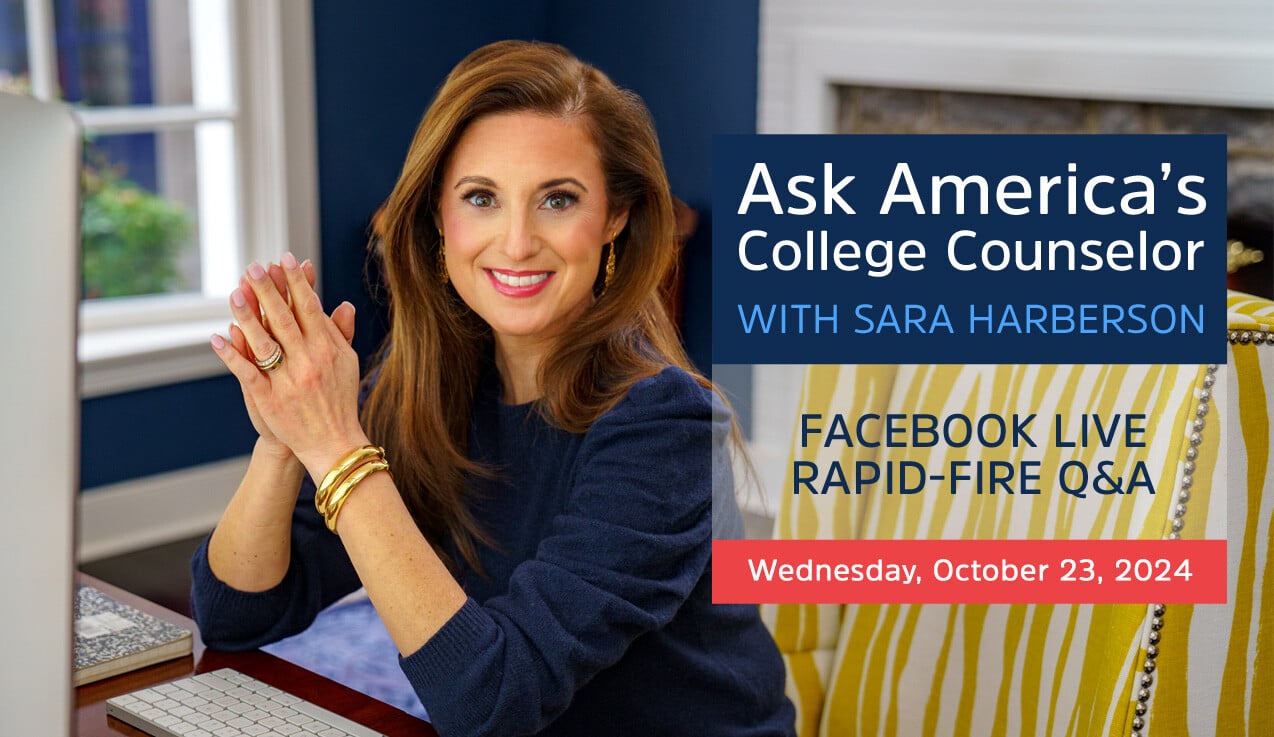Short of meeting in person, the college essay is your best chance to let a college admissions officer know who you really are. And the more remarkable your essay is, the better. During my recent Facebook Live Q&A, I offered my insider advice on everything from choosing the perfect topic to pitfalls to avoid and more.
In case you missed it, here’s a recap with a list of the questions I answered, the full video of my session, and bonus questions that I didn't get to answer live!
HERE ARE SOME OF THE QUESTIONS YOU'LL SEE ME ANSWER:
- Why are essay prompts open ended?
- When are the college essays read in relation to the rest of the application?
- Should your essay have a title?
- Should the essay topic be about the student's background, who they are now, or where they want to go?
- When writing the essay, should it describe one event in detail or a lifetime of experiences that make the student who they are?
- Should you write your essay in the first person?
- How long should the essay be?
- When is a good time to start writing essays?
- Typically, how long does it take to write a good essay?
- Is the main college essay more important than the supplemental essays?
- Should the student have one college essay for all of the colleges they apply to or have a different college essay depending on the college?
- Is it recommended to write an "outside of the box" essay instead of a traditional essay?
- Is the essay always required?
- Is seems like you need a super clever or unique idea for a college essay...what if you are just not that unique?
- How do admissions officers view essays about tragic events?
- Should a student write an essay about a problem they have, such as OCD, learning disabilities, etc.?
- Is it okay to write about a personal hurdle that you have overcome?
- Should you write your essay about transferring to a different high school?
- My son has written two college essays—one is very personal talking of loss and his strength during it, and the other is about a part-time job and talks about his transitioning to a veteran employee. Which is a better topic?
- My rising senior plans to major in Food Science and is considering an essay topic about why he is a great fit for that major. What do you think about the essay being all about their major?
- Is it okay to write an explanation of a bad grade for the college essay?
- My son wants to write about his faith in his college essay. Is this appropriate?
- What are the top mistakes to avoid when writing an essay?
- Should a student model their essay off of a viral essay that they read online?
- My daughter doesn’t feel she can effectively answer any of the prompts. What should she do?
BONUS Q&A- BIG QUESTIONS THAT DIDN'T MAKE THE VIDEO
1. Should an essay have any plea about wanting to attend that college?
If the college has an additional essay on their supplement (or their own application) about why the student is applying, the essay should be very specific about the institution—academics come first always. The student should include detailed information about the major/program they are interested, the reasons why, and also why their high school experiences prepare them for what's next. The student can also mention other reasons why they are interested in the school too (extracurricular, etc.). In terms of a plea, though, I usually reserve that for when the student gets deferred or waitlisted. A personal and moving letter about why they belong on that campus sometimes is exactly what is needed if the student gets deferred or waitlisted.
2. What about writing about death of a parent?
This is usually a very important part of a student's story. As long as the essay isn't all about the death or the parent, this type of essay can show how the student has evolved and grown since then. Every essay needs to end on an optimistic note.
3. Being a first-time college student, would it be appropriate to bring up my life experiences for a topic?
As long as it reflects who are you today that should be fine. Remember that admissions officers want to learn as much as they can about you so open up even if it makes you vulnerable.


